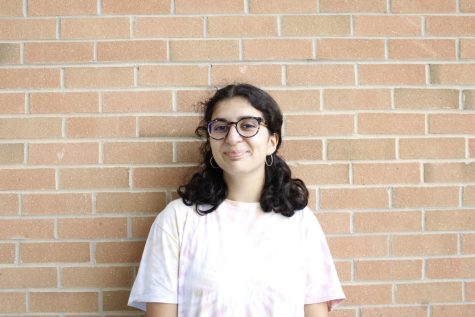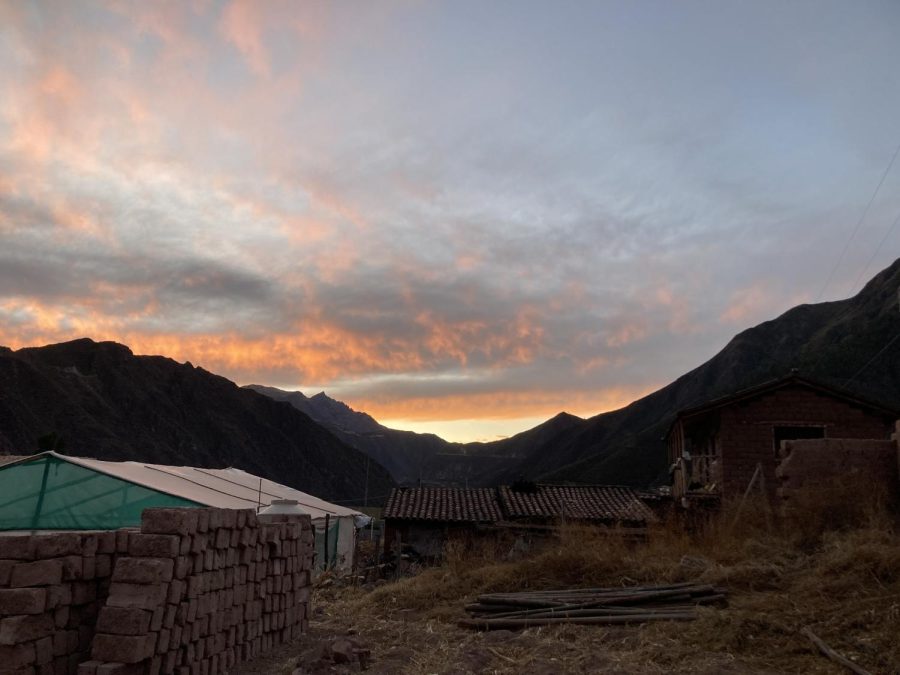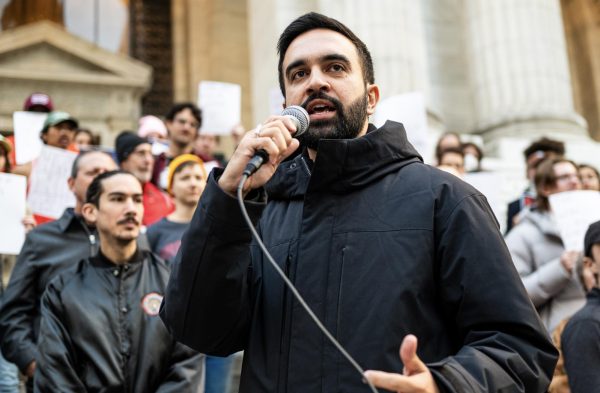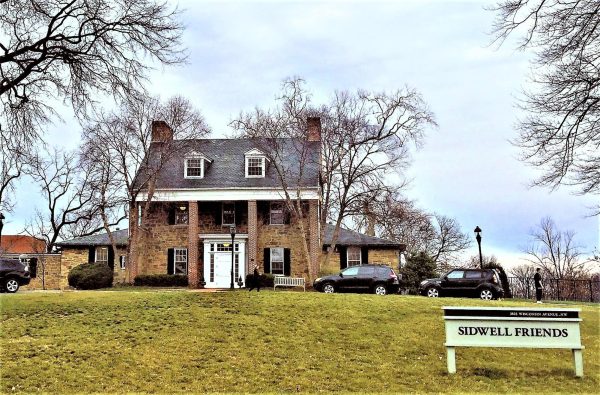Done Right, Service Trips Strengthen Individuals and Communities
This summer, I spent three weeks in the Cusco region of Peru, famously characterized by its mountainous terrain and scouring winter dryness. At the heart of Cusco lies Machu Picchu, the sacred Incan city built between the 15th and 16th centuries to serve as a home for kings. After the Spanish conquest of Peru, nobility and servants alike abandoned the advanced city, which had implemented a system of water drainage and sewage collection unparalleled in the Western world at the time.
A service program with an American travel organization brought me to Cusco in June. My group was made up of 14 other high school students, mostly from the Northeastern U.S., as well as two group leaders. We spent the majority of the trip in a small town in Cusco called Caicay, where we worked to build a community center from scratch.
Two factors influenced my decision to apply for the program in February 2022: first, I had long been interested in participating in a Spanish immersion program, and second, I wanted to spend more time in Latin America, as my dad is from Colombia.
Deciding to participate in a service program was no easy feat, however. I had long wondered whether the benefits of outsider service truly outweighed the damage caused by such visits to the communities they supposedly served. Today, for example, many are familiar with the “white savior” complex and often associate the phenomenon with service trips. American teenagers who travel to African or Latin American countries on these expeditions for the sole purpose of posting pictures of themselves with local children have become the laughing stock of the internet. With this in mind, I made the decision to participate in the program only after considering what distinctions made an act of service either positive or negative — distinctions that need not only be applied overseas, but can also be used in the Washington area.
Crucial to participating in service respectfully is understanding the context of the community one is entering. Context can include basic cultural knowledge and language proficiency, as well as an understanding of one’s place as an outsider in a community. For me, this meant being aware of the negative stereotypes associated with American service trips arriving in low-income Latin American communities like Caicay. While my peers and I worked hard to redefine this cliché by demonstrating genuine interest in working with and learning from those around us, we also had to understand that such suspicions were not baseless — the United States has a long history of exploiting Latin American countries and their inhabitants under the guise of service. Accepting that it would be impossible for us to become one with the community within a span of only three weeks allowed our service to be performed in a more respectful and nuanced manner.
Another aspect that distinguishes a positive act of service from a negative one is viewing service work as an exchange rather than a one-sided interaction. While building a community center in a town like Caicay can be beneficial to locals in the short-run, the self-discovery and global experience gained by participating in such programs is unparalleled and lasts a lifetime. Viewing service as an exchange allows room for gratitude toward the community one is “serving” and avoids problematic white-savior-like approaches to entering the community as an outsider.
An example of the discovery I experienced in Caicay was the heartwarming sense of community I observed in even the most insignificant interactions between inhabitants of the town. One of my clearest memories of the trip unfolded as I sat on the steps of my group’s host building, watching the town’s Evangelical pastor hose down the parched earth at our feet to immobilize flying dust. It was just after 3:30 p.m., the end of classes at the local elementary school. As children walked past us on their way home, the youngest strolling hand-in-hand with a parent, I saw each of them greet the pastor by name. After sharing the highlights of their days with the pastor and asking him to do the same, they began to run beneath cool droplets emerging from the hose, while the pastor laughed and playfully threatened them with a drenching. As child after child and parent after parent walked by, similar interactions took place. I continued to watch and thought about how the only other place where I had experienced such an overpowering sense of community was at Sidwell. The scene not only served as a window into a new way of life, but also mirrored my own experience and, in the process, increased my gratitude for Sidwell’s emphasis on community.
The self-reflection sparked by my time in Peru exemplified the exchange central to all forms of service. My group worked with Caicayans to build a community center, and they bestowed on us a unique opportunity for personal growth and discovery, which for me came in the form of gratitude. Understanding service as mutually beneficial rather than the act of a savior will allow us to redefine service, imbuing it with purpose and meaning for the first time.

Sofia Gaviria is currently Editor-in-Chief of Horizon. She served as a Culture Editor in the 2021-2022 school year. Prior to that, she worked as a Staff...














































